Phnom Penh, 19 November 2025 — CamboJA, a membership-based journalist association working to support independent journalism and promote a safer, more enabling environment for reporters across Cambodia, calls on all journalists—particularly those working primarily on online platforms—to uphold the highest standards of professionalism and ethical conduct.
Professional and ethical journalism is essential to ensuring the public’s right to accurate, reliable information. However, persistent gaps in ethical understanding and reporting practices among some online journalists continue to undermine public trust in the news.
As independent media outlets shrink and professional reporting practices decline, the number of online content creators and reporters relying heavily on Facebook and other social media platforms has grown rapidly. Many of these practitioners lack adherence to core journalistic principles—including fairness, accuracy, independence, and responsibility. A recent study by International Media Support (IMS) underscores these concerns, noting the erosion of public trust in news media in Cambodia.1
On November 18, a case went viral on social media involving online journalists who allegedly committed sexual harassment during a Facebook livestream targeting a woman being arrested by police. Such behavior not only violates basic ethical standards but also further damages the credibility of the media sector.
As a member of the International Federation of Journalists (IFJ), CamboJA remains committed to promoting responsible journalism and gender equality in the media. We call on all journalists and media practitioners to adhere to the core principles outlined in the IFJ Global Charter of Ethics for Journalists,2 including the following:
- The journalist shall report only in accordance with facts of media outlet which he/ she knows the origin. The journalist shall not suppress essential information or falsify any document. He/she will be careful to reproduce faithfully statements and other material that non-public persons publish in social media.
- The journalist shall observe professional secrecy regarding the source of information obtained in confidence.
- The journalist will respect privacy. He/she shall respect the dignity of the persons named and/or represented and inform the interviewee whether the conversation and other material is intended for publication. He/she shall show particular consideration to inexperienced and vulnerable interviewees.
- Journalists shall ensure that the dissemination of information or opinion does not contribute to hatred or prejudice and shall do their utmost to avoid facilitating the spread of discrimination on grounds such as geographical, social or ethnic origin, race, gender, sexual orientation, language, religion, disability, political and other opinions.
- The journalist will consider serious professional misconduct to be
- plagiarism
- distortion of facts
- slander, libel, defamation, unfounded accusations
- The journalist shall refrain from acting as an auxiliary of the police or other security services. He/she will only be required to provide information already published in a media outlet.
- The journalist shall not use the freedom of the press to serve any other interest and shall refrain from receiving any unfair advantage or personal gain because of the dissemination or non-dissemination of information.
- The journalist will not undertake any activity or engagement likely to put his/her independence in danger. He/she will, however, respect the methods of collection/dissemination of information that he/she has freely accepted, such as “off the record”, anonymity, or embargo, provided that these commitments are clear and unquestionable.
- Within the general law of each country the journalist shall recognize in matters of professional honour, the jurisdiction of independent self-regulatory bodies open to the public, to the exclusion of every kind of interference by governments or others.
In light of a recent incident circulating on social media—which raise serious concerns about misconduct by both journalists and authorities toward a female crime suspect—CamboJA urges all journalists and media outlets, including our members, to ensure that their reporting, especially on cases involving gender-based violence (GBV), adheres to code of ethics and avoids causing further harm. To meaningfully advance gender equality, newsrooms must also reflect internally and ensure that women journalists are free from all forms of gender-based violence, both online and offline.
CamboJA stands ready to work with all relevant stakeholders to foster a professional, ethical, and inclusive media landscape where journalists contribute to an informed, safe, and democratic society.
